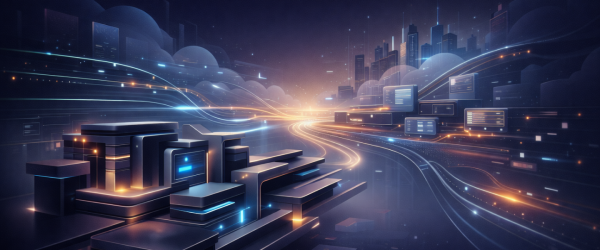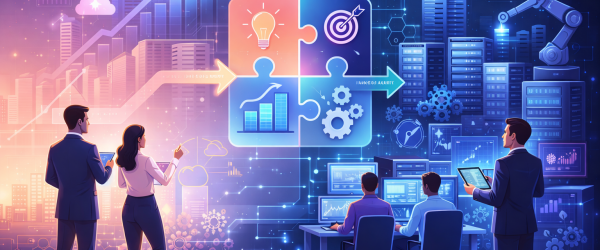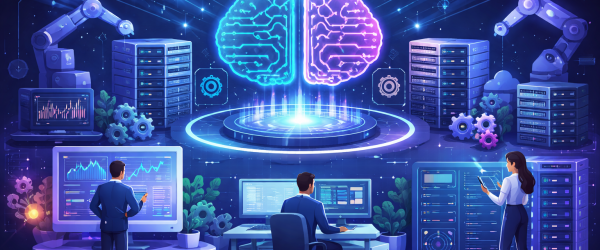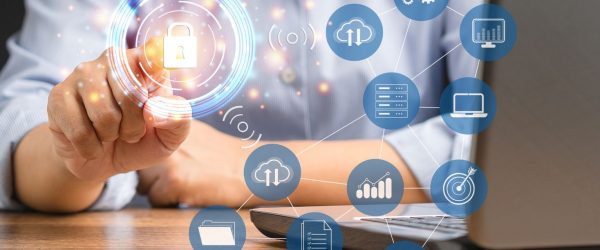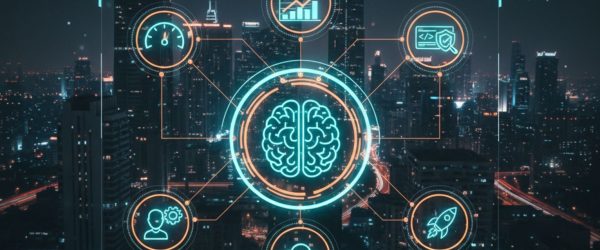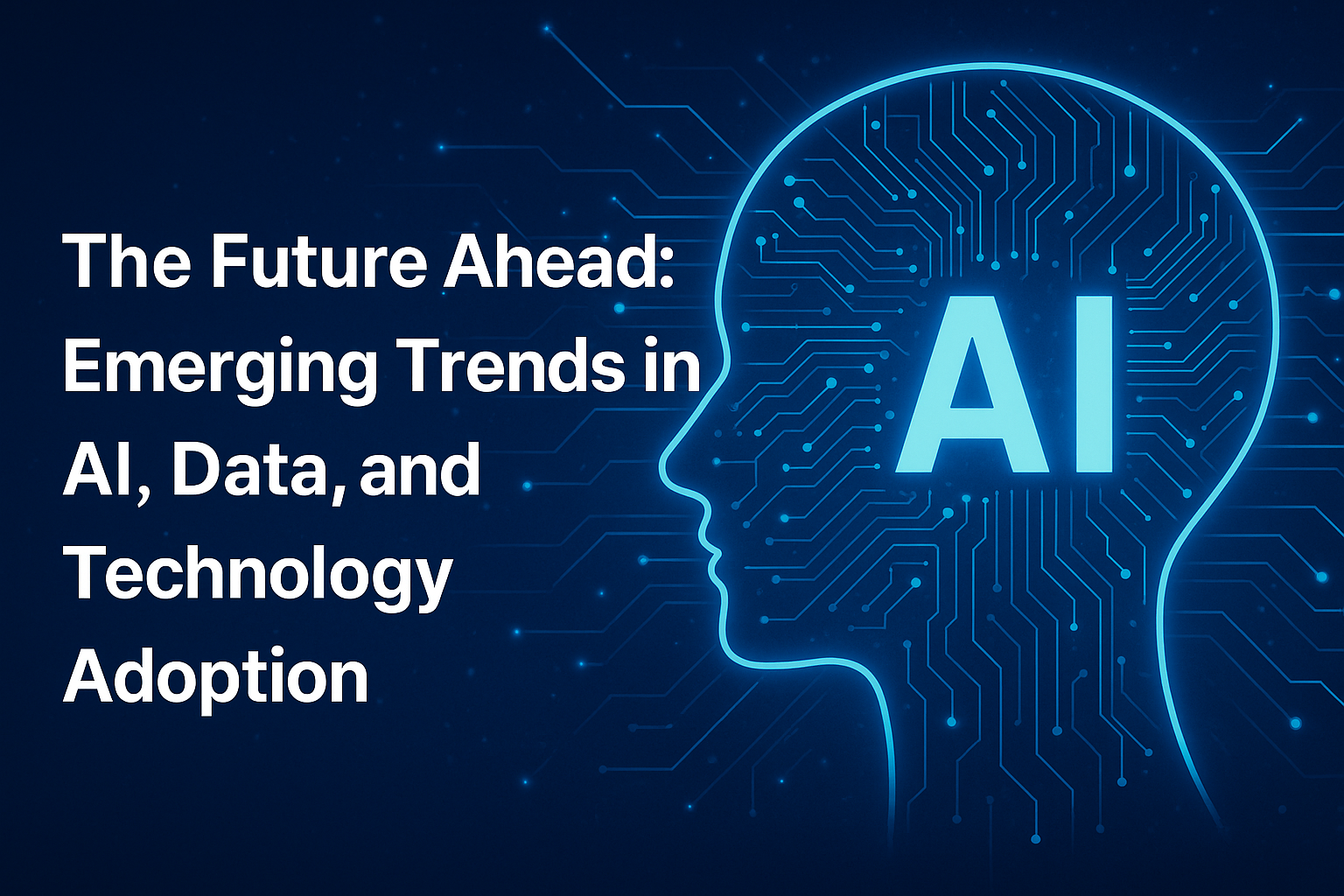
🚀 Introduction
Let’s face it — we live in a world where yesterday’s tech dreams are today’s reality. AI chats with us, our watches monitor our heartbeats, and data drives decisions in boardrooms and bedrooms alike. The digital revolution isn’t slowing down. In fact, it’s just shifting gears.
So, what’s next? This article explores the powerful trifecta of Artificial Intelligence, Data, and Technology, and how their evolving synergy is reshaping everything from how we work to how we live.
🤖 The Evolution of Artificial Intelligence
From Rule-Based Systems to Machine Learning
AI’s humble beginnings were rooted in rule-based systems — “if this, then that.” Fast forward to machine learning, where algorithms now learn from data instead of being explicitly programmed. This leap made AI smarter, adaptive, and more scalable.
Neural Networks and Deep Learning
Inspired by the human brain, neural networks revolutionized image recognition, language translation, and speech processing. Deep learning layered up these networks, unlocking new levels of accuracy and intelligence.
Generative AI and Foundation Models
2023 was the year of ChatGPT, MidJourney, and DALL·E. Foundation models can now write, draw, compose music, and code, often better than humans. These models are setting a new benchmark for creativity in machines.
📊 Data is the New Oil: But Cleaner
The Rise of Big Data
With every click, swipe, and scroll, we generate data — and lots of it. Big Data turned messy digital footprints into goldmines for insights, especially in marketing, finance, and healthcare.
Real-Time Data Processing
Gone are the days of static spreadsheets. With technologies like Apache Kafka and Spark, companies now operate with real-time dashboards and alerts, reacting to changes as they happen.
Ethical Data Collection and Usage
Data privacy is no longer optional. Consumers demand transparency, and regulations like GDPR and CCPA are enforcing it. Brands that misuse data? Cancelled.
☁️ Cloud Computing & Edge Technology
Shift from On-Prem to Hybrid Environments
More companies are ditching physical servers for scalable, pay-as-you-go cloud models. But they’re not going all-in — hybrid setups give the best of both worlds.
Rise of Edge Computing
With IoT exploding, data processing needs to happen closer to the source. Edge computing reduces latency, making smart devices smarter — think autonomous cars or remote surgeries.
How Cloud Fuels AI and Data Projects
Without cloud platforms like AWS, Azure, or GCP, we wouldn’t have the computing muscle to train massive AI models or crunch big data sets at scale.
⚙️ Automation Across Industries
Robotic Process Automation (RPA) in Action
From invoice processing to HR onboarding, RPA bots are taking over repetitive tasks, improving efficiency and slashing human error.
Hyperautomation and Intelligent Workflows
Hyperautomation takes it a step further, combining AI, RPA, and ML to create self-improving systems. The result? Businesses that run like clockwork.
🌐 IoT: The Internet of Everything
Smart Cities and Homes
Smart thermostats, connected traffic systems, and real-time pollution monitors are turning cities into intelligent ecosystems.
Industrial IoT (IIoT) in Manufacturing and Supply Chains
IoT sensors are helping factories reduce downtime, optimize inventory, and enhance safety — basically, making Industry 4.0 a reality.
🔗 Blockchain Beyond Crypto
Decentralization and Data Integrity
Blockchain offers tamper-proof records, which is a game-changer for industries like logistics, finance, and even voting systems.
Web3 and Trustless Transactions
The next iteration of the internet is decentralized — giving power back to users. Think token-based economies, DAOs, and self-sovereign identities.
🛡️ Cybersecurity in a Connected World
AI-Driven Security Systems
Cyber threats are evolving, but so are defenses. AI-based systems can detect anomalies, flag threats, and even respond to breaches in real time.
Zero Trust Architecture
“Trust no one” is the new mantra. Every device and user is verified continuously, not just at login.
Privacy-First Design Trends
From end-to-end encryption to privacy-preserving AI, the focus is shifting from reactive to proactive protection.
💼 The Future of Work in a Tech-Driven World
AI-Powered Workflows
Tools like Notion AI, GitHub Copilot, and CRM AI assistants are changing how we code, write, sell, and support.
Remote Work & Virtual Collaboration Tools
Zoom, Teams, and virtual whiteboards are now cornerstones of digital workplaces, breaking geographical barriers.
Upskilling and Digital Literacy
To stay relevant, workers must upskill in cloud, data, AI, and soft skills like adaptability and creativity.
📏 Ethical AI and Responsible Tech Use
Addressing Bias in AI Models
Bias is the AI industry’s dirty little secret. Ethical teams are using diverse datasets and audit trails to fix this.
Regulatory Frameworks
Governments are catching up. The EU AI Act and U.S. AI Bill of Rights aim to regulate how AI is built and used.
Building Transparent Systems
Explainability is key. Users need to know how a system made a decision — especially in sectors like finance, health, and law.
🕶️ Augmented and Virtual Reality
Immersive Learning and Training
VR is replacing boring training manuals with virtual labs and simulations — especially in healthcare and defense.
AR/VR in Retail and Real Estate
Try-before-you-buy is here. From virtual property tours to digital fitting rooms, AR/VR is reshaping how we shop.
⚛️ Quantum Computing’s Potential
How Quantum Will Reshape AI
Quantum computers could process data trillions of times faster, unlocking new AI capabilities in drug discovery, finance, and physics.
Challenges in Adoption
We’re still in early stages — with scalability, error correction, and cost being major roadblocks.
🩺 Tech in Healthcare: Smarter, Faster, Healthier
AI Diagnosis and Predictive Analytics
AI tools like IBM Watson and Google’s DeepMind can predict diseases, recommend treatments, and personalize care.
Wearables and Remote Monitoring
Fitness trackers are evolving into health-grade monitoring tools, helping detect arrhythmias, glucose levels, and more.
🌿 Green Tech and Sustainability Trends
AI for Climate Modeling
AI is improving climate forecasts, energy grids, and disaster response planning.
Energy-Efficient Data Centers
Companies like Google and Microsoft are investing in carbon-neutral and water-cooled data centers to power future innovation responsibly.
📈 What Businesses Should Do to Stay Ahead
Digital Transformation Playbook
Start small, move fast. Focus on customer experience, agile development, and continuous innovation.
Culture of Innovation
Tech alone isn’t enough. Businesses must build open cultures where experimentation, failure, and learning are encouraged.
🎯 Conclusion
The future isn’t just coming — it’s here. AI, data, and emerging technologies are reshaping our world in profound ways. Whether you’re a startup, a Fortune 500, or just a curious techie, staying informed and agile is the key to thriving in this digital age. So buckle up — the road ahead is wild, but full of promise.
❓ FAQs
1. What is the most impactful AI trend right now?
Generative AI — it’s transforming content creation, design, customer service, and more.
2. How is data changing the business landscape?
Data-driven insights lead to smarter decisions, better personalization, and faster innovation.
3. Why is edge computing gaining popularity?
It enables faster processing at the source, which is essential for real-time applications like autonomous vehicles.
4. What should businesses prioritize in digital transformation?
Customer experience, cloud migration, automation, and upskilling employees.
5. Will quantum computing replace traditional computers?
Not soon. But it will complement them by solving problems that classical computers can’t tackle efficiently.

